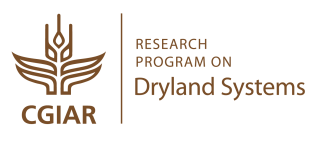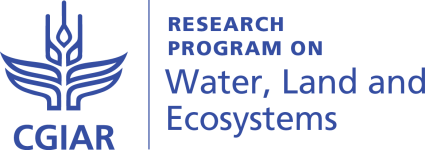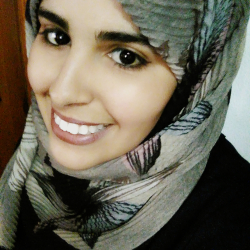Global Geo-Informatics Options by Context (GeOC): Actual Capabilities and Future Perspectives
Published on: November 5, 2017, Submitted by Fajr Fradi on: October 29, 2017
Tunisian national and international partners come together for the end workshop on GeOC Web-GIS and SLM "Options by Context".
This photos shows the participants of the workshop "Sustainable Land Management to Achieving Land Degradation Neutrality: Options-by-Context Approach and Tool", Held in Tunis in 24/10/2017
Promoting effective tools for decision makers has been the main objective of the project “Impact Evaluation of SLM Options to Achieve Land Degradation Neutrality” all along the course of its implementation. The effort has led to the development of the Global Geo-Informatics Options by Context (GeOC), the ultimate Web-GIS able to support the application of Sustainable Land Management (SLM) practices by local, national and international communities, providing them with the context-specific information required to make sound investment decisions for agricultural and rural development.
The closing workshop “Options-by-Context Approach and Tool” has been held in Tunis on Tuesday 24th October 2017, co-organized by the International Center for Agricultural Research in Dry Areas (ICARDA), Institut National de Recherches en Génie Rural, Eaux et Forêts (INRGREF) and Institut des Régions Arides de Médenine (IRA). National policy and decision makers from the Water & Soil Conservation department and international scientists attended the event, together with agents from the two regional study sites, Medenine and Zaghouan, expectant to see how the data collected there had been put to use by the tool.
Dr. Quang Bao Le (ICARDA) opened the workshop by highlighting the progresses of the project since its start and displayed the latest version of GeOC; the tool had been presented for the first time in March 2017 to its developing partners. Dr. Le pointed out the role played by quality data collection in building reliable options by context analysis. The Tunisian test sites of Zaghouan and Medenine have proven to be especially precious, thanks to the National Agricultural Research Systems (NARS) partners, the Master students and the local authorities active there. Presented at the event by the focal points Dr. Taoufik Hermassi (INRGREF) and Dr. Mohamad Ouessar (IRA), the data have been validated jointly by the two professors and the ICARDA team. Dr. Hermassi and Dr. Ouessar stated that Tunisian authorities can steadily provide more data about successful SLM implementations in their territories, further enhancing GeOC capabilities and potential in terms of scenarios evaluation and informed decision-making.
Ms Fajr Fradi (ICARDA) and Dr. Badabate Diwediga (iMMAP) illustrated and put to test with the audience the latest GeOC improvements of the SLM form and Web-GIS layout, which aim is to improve user experience and ease the manipulation of the tool’s datasets. Participants have shown appreciation on the usefulness of the enhancements, such as the possibility of import pre-filled forms and a better interface, also providing valuable feedback and stressing the interest that future implementers, such as national agents, already have in the tool. Dr. Diwediga proceeded to underline the effectiveness of tailoring SLM strategies within policy-making processes, as demonstrated by the Zaghouan case illustrated in his presentation “Multi-temporal and multi-scale assessment of landscape pattern dynamics in Tunisia using MODIS and Landsat data”. The study’s findings encourage the extension of SLM mapping to other Tunisian governorates, unlocking the full national SLM potential by analysing the huge diversity of options and contexts.
Closing the event, Dr. Claudio Zucca (ICARDA) led the working group discussion on the tool’s potential and the future possible collaborations envisioned by the partners. Since the tool has received unanimous appreciation, the participants requested special training for the future SLM agents, an excellent opportunity to strengthen the collaboration and ensure proper use of GeOC at national level. Other actors went further, suggesting to employ GeOC in other ongoing projects in Tunisia, offering themselves to promote the tool, a clear signal of the enabling collaboration established between ICARDA and its partners.
Acknowledgement
GeOC is the result of the synergic efforts by CGIAR Research Program on Dryland Systems (CRP-DS), the German Federal Ministry for Economic Cooperation and Development (BMZ), the International Center for Agricultural Research in the Dry Areas (ICARDA), ICARDA Geoinformatics Unit (GU), the CGIAR Research Program on Water, Land and Ecosystems (CRP-WLE) and is powered by iMMAP, CodeObia and Amazon Web Services (AWS).







